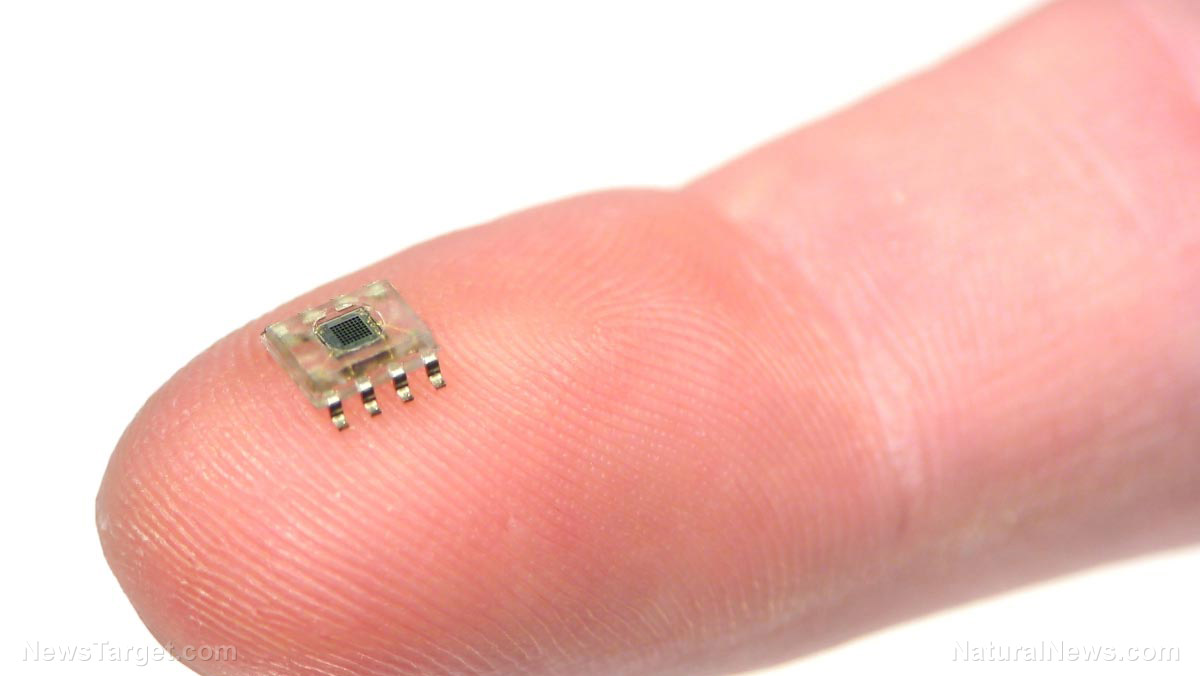Internet of Bodies: Implantable microchips could put all your information in one place and make you ‘hackable’
04/22/2022 / By Mary Villareal

Implantable microchips are now being marketed as the ultimate in convenience, but their goal is to ultimately create the Internet of Bodies (IoB) – an ecosystem of sensors designed to monitor, analyze and modify human bodies and their behavior.
They would allow you to open doors without keys or buy things without your wallet.
Sweden is one of the first countries to adopt implantable microchips to become more or less a cashless society. The implant will replace the need for debit and credit cards altogether, along with identification and keys. To pay for items, all you have to do is place your hand near a contactless card reader to register payment. (Related: Implantable chips for humans to be implemented globally.)
An estimated 5,000 to 10,000 Swedes have been chipped so far, although authorities claimed that they don’t know the exact number as there is still no central registry.
The chips are said to be untrackable at present, but this may not remain so in the future. While early microchips contain only limited amounts of information, implementing a global digital identification system would include everything imaginable about a person, from online search histories and medical information to personal banking data, social credit score, and more.
With the IoB, nothing will be private — biosensors that measure and monitor biological functioning and emotional states will also be developed. This could also include biosensors that detect diseases by tracking chemical reactions inside the body. For instance, it could determine whether or not you have been infected with a virus such as SARS-CoV-2 or influenza, even before symptoms emerge. (Related: Microchipping technology can track your COVID vaccination status and other digital details with a simple phone scan.)
Implanted chips could make people vulnerable to hackers and surveillance
Financial technology expert Theodora Lau noted that implanted payment chips are already an extension of the Internet of Things – as in they are a way of connecting and exchanging data. Thus, the benefits must be weighed against the potential risks, especially when more personal information begins to be migrated into them, leaving people vulnerable to hackers and surveillance.
“How much are we willing to pay, for the sake of convenience? Where do we draw the line when it comes to privacy and security? Who will be protecting the critical infrastructure, and the humans that are part of it?” Lau asked.
There are also other concerns surrounding implantable microchips. Just about any smartphone can read the chip with a proper scanner installed, and anybody would be able to hack it, according to Dr. Geoff Watson, a consultant anesthetist who has teamed up with the chip’s inventor to help ensure that the implant procedure is carried out to a medical standard.
Many say they have no privacy fears around the current microchips, but it is reasonable to suspect that privacy concerns will also rise with the amount of information held in them. Credit card theft was rare in the beginning, but today, information gets stolen and identity theft has become rampant.
There is no reason to believe that theft and fraud won’t happen with microchipping becoming more commonplace, and the risk will increase with government involvement and control over behavior and spending once the microchips get connected to personal finances and programmable digital currencies.
History professor Yuval Noah Harari warned that humans are now hackable animals, meaning the technology exists by which a company or the government can know a person better than they know themselves, and can be very dangerous if misused.
He predicted that algorithms will be used to make decisions that historically have been made by humans themselves, including whether or not a person can get hired for a particular job or whether they are granted a loan, among other things.
Harari also discussed transhumanism in a separate interview, noting that technology is now learning to produce bodies and minds through augmented bodies, cloud technology and artificial-intelligence connections, and that one of the greatest challenge now is what to do with people that have become obsolete in the process.
Follow FutureTech.news for more information about microchips and what it means for information and privacy.
Watch the video below to know more about Yuval Harari’s interpretation of the “Great Reset” narrative.
This video is from the Thrivetime Show channel on Brighteon.com.
More related stories:
Swedish startup introduces implantable microchip that can store a COVID passport under your skin.
Michigan passes bill to “voluntarily” microchip humans with RFID transponders.
DARPA uses mainstream media to flaunt implantable microchip “to stop coronavirus in its tracks.”
Sources include:
Submit a correction >>
Tagged Under:
Cashless society, computing, Dangerous, digital identification, future science, future tech, implantable microchip, information technology, Internet of Bodies, inventions, Microchipping, privacy watch, slavery, smart implants, surveillance, transhumanism
This article may contain statements that reflect the opinion of the author
RECENT NEWS & ARTICLES
COPYRIGHT © 2017 TWISTED.NEWS
All content posted on this site is protected under Free Speech. Twisted.news is not responsible for content written by contributing authors. The information on this site is provided for educational and entertainment purposes only. It is not intended as a substitute for professional advice of any kind. Twisted.news assumes no responsibility for the use or misuse of this material. All trademarks, registered trademarks and service marks mentioned on this site are the property of their respective owners.




















